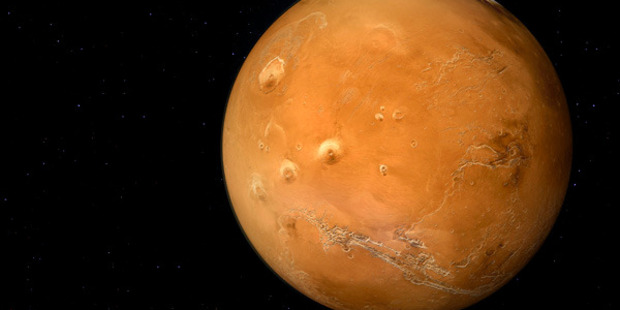Science
Earth Faces Struggles as NASA Reveals Signs of Life on Mars

Recent developments have highlighted a week of significant events that raise profound questions about humanity’s condition. Most notably, NASA announced the discovery of strong evidence suggesting ancient life on Mars, igniting interest in the planet’s potential to have once supported life. This revelation comes at a time when alarming statistics reveal that, for the first time in history, there are more obese children than underweight children globally, emphasizing a stark disparity in health and nutrition.
In the Middle East, ongoing conflicts have escalated, as missile strikes disrupt peace talks aimed at resolving tensions in the region. Meanwhile, the skies over Europe are increasingly crowded with drones and fighter jets, signaling a rise in military activity. The United States, often regarded as a beacon of democracy, has witnessed yet another political assassination, adding to the turmoil of national discourse.
These events prompt reflection on the complexities of human nature. If extraterrestrial beings were to arrive on Earth, one might wonder how we would explain our actions. Despite religious teachings that advocate for love and compassion, humanity often finds itself embroiled in conflict, sometimes waged in the name of faith. While some individuals struggle with hunger, others grapple with obesity, illustrating a profound inequality in resource distribution.
Democracy, which is intended to symbolize freedom, can turn violent when voices are silenced through acts of aggression. Such patterns of behavior—conflict, war, and destructive cycles—are not new. They echo throughout history, paralleling the animal kingdom, where creatures fight for territory and sustenance. However, unlike animals, humanity often engages in conflict over ideological differences rather than basic survival needs.
The rise of social media has further complicated these dynamics, potentially exacerbating divisions and misunderstandings. As individuals connect online, the potential for discord has increased, prompting questions about the impact of digital communication on society.
In contemplating how to present ourselves to potential extraterrestrial visitors, one might consider who would represent humanity. Would we introduce them to political figures such as former President Donald Trump, Chinese President Xi Jinping, religious leaders like The Pope, or monarchs such as The King? The choice reflects our values and priorities as a species.
In conclusion, as humanity grapples with its challenges, the question arises: what would we say to an alien visitor? Perhaps the more pertinent inquiry is whether there is space for mutual understanding and cooperation in the vast universe beyond our planet.
-

 World3 months ago
World3 months agoTest Your Knowledge: Take the Herald’s Afternoon Quiz Today
-

 Sports3 months ago
Sports3 months agoPM Faces Backlash from Fans During Netball Trophy Ceremony
-

 Lifestyle3 months ago
Lifestyle3 months agoDunedin Designers Win Top Award at Hokonui Fashion Event
-

 Sports3 months ago
Sports3 months agoLiam Lawson Launches New Era for Racing Bulls with Strong Start
-

 Lifestyle3 months ago
Lifestyle3 months agoDisney Fan Reveals Dress Code Tips for Park Visitors
-

 World3 months ago
World3 months agoCoalition Forms to Preserve Māori Wards in Hawke’s Bay
-

 Health3 months ago
Health3 months agoWalking Faster Offers Major Health Benefits for Older Adults
-

 Politics3 months ago
Politics3 months agoScots Rally with Humor and Music to Protest Trump’s Visit
-

 Top Stories3 months ago
Top Stories3 months agoUK and India Finalize Trade Deal to Boost Economic Ties
-

 Entertainment3 months ago
Entertainment3 months agoExperience the Excitement of ‘Chief of War’ in Oʻahu
-

 World3 months ago
World3 months agoHuntly Begins Water Pipe Flushing to Resolve Brown Water Issue
-

 Science3 months ago
Science3 months agoNew Interactive Map Reveals Wairarapa Valley’s Geological Secrets









